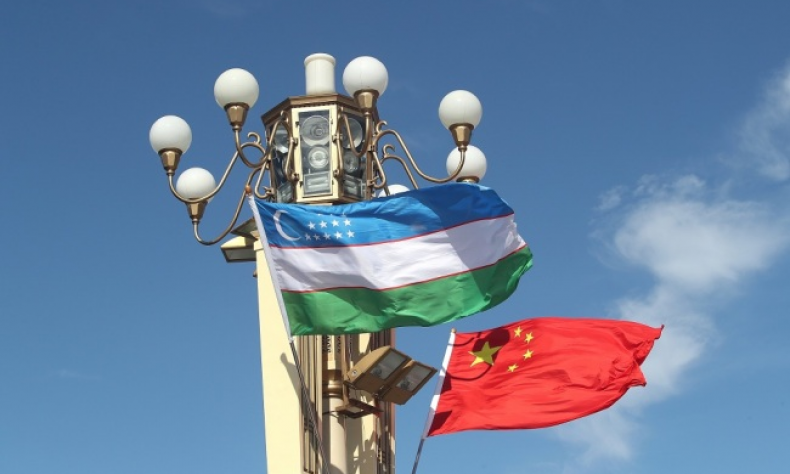Strengthening a Comprehensive Strategic Partnership

The positive dynamics of development across the entire spectrum of Uzbek-Chinese relations suggest that this trend will grow, opening up new horizons for the further deepening of the comprehensive strategic partnership.
In recent years, the quality of the Uzbekistan-China comprehensive strategic partnership has reached a new level.
President of the Republic of Uzbekistan Shavkat Mirziyoyev visited China twice in 2023. The year 2024 will also be active for the two nations and full of important events at the highest levels.
Political dialogue
The Uzbek-Chinese Intergovernmental Cooperation Committee has been meeting on an ongoing basis since 2011, with seven subcommittees focusing on specific areas. The establishment of a subcommittee on collaboration in poverty reduction during the China-Central Asia Summit in May 2023 has opened a new dimension for partnership between the two nations.
In addition to cooperation through bilateral and regional institutions, the two countries are also deepening their comprehensive strategic partnership through participation in the Belt and Road Initiative (BRI), a China-proposed initiative aimed at boosting connectivity along and beyond the ancient Silk Road routes. At the invitation of Chinese President Xi Jinping, President of Uzbekistan Mirziyoyev has taken part in the Belt and Road Forum for International Cooperation in Beijing three times—in 2017, 2019 and 2023.
One of the most promising areas of BRI cooperation is unlocking the transport potential of Central Asia, particularly through the construction of the Uzbekistan-Kyrgyzstan-China Railway. The line will significantly shorten the route from East Asia to the countries of the Middle East and Southern Europe, and shorten goods delivery times by seven to eight days. This will have a positive impact on the growth of trade between China and the countries of Central Asia, in particular with Uzbekistan.
Trade cooperation
The positive dynamic in trade and economic cooperation between Uzbekistan and China still has much room for further growth. To tap this potential, both countries are working together to create favorable conditions for increasing mutual trade, attracting Chinese investment in significant industrial and infrastructure projects in Uzbekistan, and developing collective action in the transport and logistics sector.
This is largely facilitated by the most favored nation regime, which requires a country to extend the same trade terms to all trading partners, in force for trade between the two countries since 2011.

China is one of Uzbekistan’s largest trading partners. In January-November 2023, trade turnover increased over 30 percent year on year, surpassing $12 billion, according to Chinese statistics. The total volume of disbursed Chinese investments in Uzbekistan is now $11 billion, five times what it was in 2017.
Partnerships and investment by Chinese companies in Uzbekistan are leading to the establishment of modern enterprises and the implementation of major projects in the oil and gas, chemical, textile and other industries, and new jobs are being created.
There are now over 2,000 enterprises in Uzbekistan that operate with Chinese investment, in sectors including energy, transport, communications, agriculture and education.
Cultural ties
Uzbekistan and China have reaped the benefits of cultural exchange for many centuries. This long history of friendship and mutual understanding between the peoples of both countries has created a strong foundation for the present development of intercivilizational dialogue.
There is an increased interest of both peoples in mutual language learning. Confucius Institutes, nonprofit public institutions that aim to help people better understand China by teaching Chinese language and culture at universities overseas, have been operating in the city of Tashkent since 2005 and the city of Samarkand since 2014. More than 1,000 students are trained in these institutes every year, making an important contribution to the popularization and study of Chinese language and culture.
Correspondingly, an Uzbek language department has been operating at the Minzu University of China in Beijing since 2010, and in 2018, a bachelor’s program in Uzbek language and a center for Uzbek language and culture were established at Shanghai International Studies University.
The number of young people studying Chinese in Uzbekistan is growing; they are also attracted by Chinese culture, music and dance. The Chinese National Cultural Center in Tashkent makes a positive impact by providing scholarships and grants for Uzbek youth wishing to study in China.
Uzbekistan, like China, is rich in historical and cultural heritage and unique ancient architectural monuments, which have always attracted tourists from all over the world.
Great efforts are being made to popularize Uzbekistan as a destination for Chinese tourists, who have been able to visit visa-free for up to 10 days since March 2021. In particular, study tours to Uzbekistan have been organized for major Chinese media and journalists, videos about Uzbekistan are broadcast on Chinese channels, and large tourism fairs and exhibitions are held annually.
Thanks to these measures, the flow of Chinese tourists to Uzbekistan has increased significantly in recent years. In 2017-19, their number increased from 19,000 to more than 54,000 people. The lifting of anti-COVID restrictions, without a doubt, has made it possible to significantly increase the mutual tourist flow once more.

Further prospects
The potential for the Uzbekistan-China partnership is huge and is far from being fully realized. Making the most of future opportunities requires practical measures based on detailed research.
The priorities remain in the further expansion of trade and economic cooperation, the development of transport infrastructure and digital technologies, the deepening of cultural and humanitarian ties and interregional exchanges, and the alignment of the development strategies of the two countries.
It is necessary to note a number of promising areas that should be given maximum attention.
The first is cooperation in automaking. China’s automobile industry is developing rapidly, particularly the development and production of new-energy vehicles. The country is making great strides in advancing related key technologies, and combining these technologies with Uzbekistan’s rich resources has the potential to make its vehicles even more competitive in the markets of third countries.
Second, there are great prospects for cooperation in the field of energy, particularly green energy. Today, Uzbekistan has set ambitious goals to increase the share of renewable energy sources in its total energy supply to 30 percent by 2030 and increase their annual production capacity to 27 gigawatts. Partnerships with China are driving this process through investment and the supply of technology.
A third major area of cooperation is agriculture. Uzbekistan works with China on projects in the fields of processing fruits and vegetables, production of biofertilizers, agricultural machinery, irrigation systems and the creation of livestock complexes.
Electrical engineering is a fourth major area of cooperation. Uzbekistan intends to adopt China’s rich experience and technologies in this industry. In recent years, the volume of electrical products produced in Uzbekistan has increased by almost four times.
Uzbekistan is introducing new support measures for its electrical equipment manufacturers, which receive subsidies for transporting products abroad, as well as benefits in the form of a 50-percent reduction in income and property taxes.
In addition, increasing the two-way flow of tourists is a priority, given the steady development of the tourism sector in Uzbekistan.
The positive dynamics of development across the entire spectrum of Uzbek-Chinese relations suggest that this trend will grow, opening up new horizons for the further deepening of the comprehensive strategic partnership.
The author, Muzaffar Kamilov, is press secretary at the Embassy of Uzbekistan in China.
 Facebook
Facebook
 Twitter
Twitter
 Linkedin
Linkedin
 Google +
Google +










